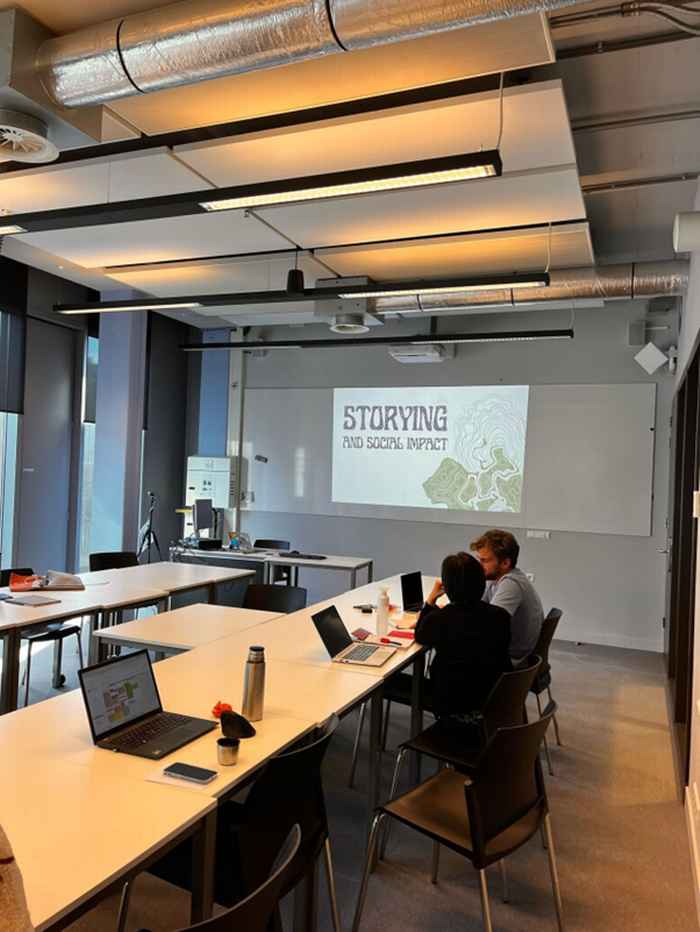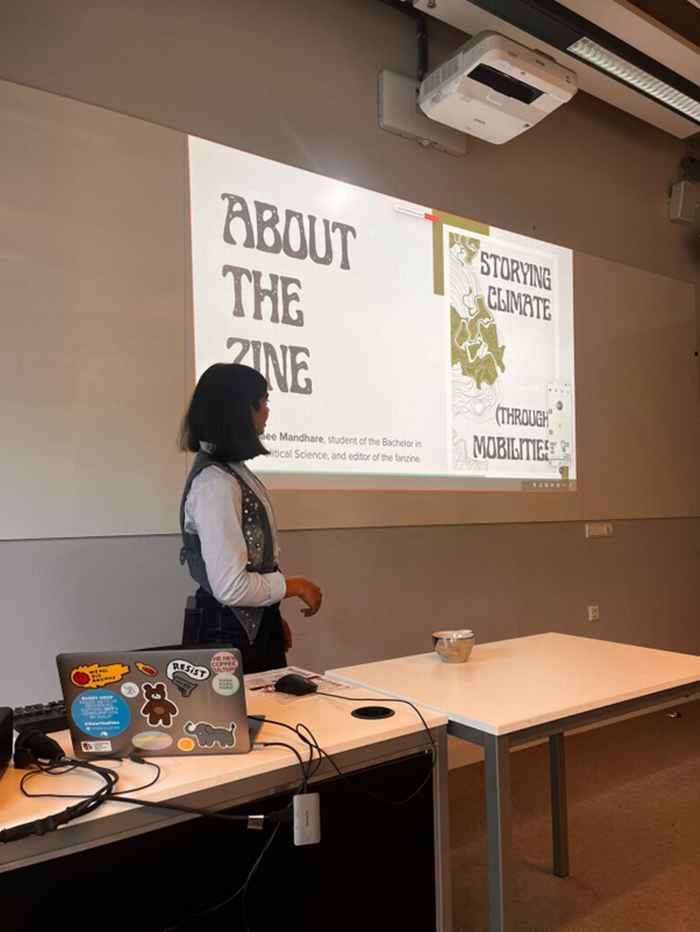Storying as Method, Impact as Practice
GID Seminar April 2025
1 May 2025

Drawing inspiration from the storying workshop “Storying Climate (Through) Mobilities”, co-led by Karen Paiva Henrique, Maggi Leung, and Hebe Verrest in December 2024, this session explored storytelling as both a method of inquiry and a tool for generating meaningful impact.
Why is storytelling relevant in academic settings?
Across time and cultures, people have gathered around fires, under trees, or in everyday spaces to share stories. These acts were not only a means of sharing knowledge, but also of creating a sense of community, continuity, and belonging. In today’s hyper-individualistic societies, we often forget the deep value of storytelling—not only its content, but also its forms: metaphors, images, rhythms, and emotional resonance. Hence, storytelling remains a powerful method for learning, building connections, and enabling transformation.
About the seminar
Under the title Storying and Social Impact, this seminar brought together a vibrant and multidisciplinary group of students, researchers, and faculty members of the Governance and Inclusive Development programme group to reflect on how storytelling can drive social change, particularly in the context of climate mobilities.
Held at the University of Amsterdam, the seminar was a space for critical inquiry, creative engagement, and collective reflection on the meaning and practice of social impact.
The group began by unpacking a central question: 'What is social impact, really?'
Moving beyond traditional metrics, participants were invited to explore social impact as both an outcome and a transformative process. This included fostering wellbeing, inclusion, and sustainability, as well as interrogating power dynamics—asking who benefits, who is left out, and what unintended consequences may arise.

At the end of Ariadna’s presentation of the work led by GID, student Saee Mandhare shared the progress they have been making together collaboratively with the fanzine.
The seminar ended with an interactive session where participants were asked how stories of displacement and movement shape plural understandings of climate vulnerability, resilience, and agency. Participants gathered in small groups to share personal narratives, mapping emotional resonances and common themes that ultimately shaped a collective story.
This workshop served to emphasise storytelling not just as a research method, but as a political and ethical practice—one that amplifies marginalised voices, builds solidarity, and invites to reflect on how we narrate others’ experiences.
Reflections and outcomes
The workshop’s success was evident in participant feedback. Students and professors alike spoke of its emotional power and its ability to flatten academic hierarchies.
As one participant noted, “using affect was a more potent way to communicate climate effects than just numerical data.”
Another reflected on the need to reconsider their positionality and narrative habits in light of the workshop’s provocations. To extend the life of the stories shared, the group co-created a fanzine that documents this collective experience, which will soon be available online and in a printed version. The idea was to create a tool open to everyone—one that invites others to revisit, reimagine, and continue the conversations started in the seminar.
Through shared stories, critical dialogue, and creative experimentation, new ways were explored of thinking about impact, vulnerability, and climate justice. In doing so, another step was taken towards rethinking how research is communicated as part of a more responsive practice.
